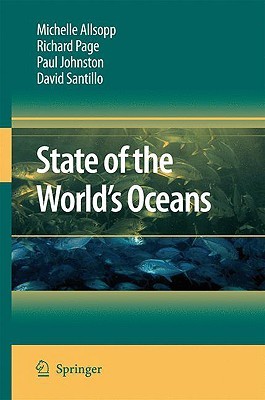
- We will send in 10–14 business days.
- Author: Michelle Allsopp
- Publisher: Springer
- ISBN-10: 140209115X
- ISBN-13: 9781402091155
- Format: 15.5 x 23.6 x 1.5 cm, kieti viršeliai
- Language: English
- SAVE -10% with code: EXTRA
Reviews
Description
The world's oceans cover 70% of the earth's surface and are home to a myriad of amazing and beautiful creatures. However, the biodiversity of the oceans is incre- ingly coming under serious threat from many human activities including overfi- ing, use of destructive fishing methods, pollution and commercial aquaculture. In addition, climate change is already having an impact on some marine ecosystems. This book discusses some of the major threats facing marine ecosystems by cons- ering a range of topics, under chapters discussing biodiversity (Chapter 1), fisheries (Chapter 2), aquaculture (Chapter 3), pollution (Chapter 4) and the impacts of increasing greenhouse gas emissions (Chapter 5). It goes on to explore solutions to the problems by discussing equitable and sustainable management of the oceans (Chapter 6) and protecting marine ecosystems using marine reserves (Chapter 7). Presently, 76% of the oceans are fully or over-exploited with respect to fishing, and many species have been severely depleted. It is abundantly clear that, in general, current fisheries management regimes are to blame for much of the widespread degradation of the oceans. Many policy-makers and scientists now agree that we must adopt a radical new approach to managing the seas - one that is precautionary in nature and has protection of the whole marine ecosystem as its primary objective. This 'ecosystem-based approach' is vital if we are to ensure the health of our oceans for future generations.
EXTRA 10 % discount with code: EXTRA
The promotion ends in 21d.21:46:55
The discount code is valid when purchasing from 10 €. Discounts do not stack.
- Author: Michelle Allsopp
- Publisher: Springer
- ISBN-10: 140209115X
- ISBN-13: 9781402091155
- Format: 15.5 x 23.6 x 1.5 cm, kieti viršeliai
- Language: English English
The world's oceans cover 70% of the earth's surface and are home to a myriad of amazing and beautiful creatures. However, the biodiversity of the oceans is incre- ingly coming under serious threat from many human activities including overfi- ing, use of destructive fishing methods, pollution and commercial aquaculture. In addition, climate change is already having an impact on some marine ecosystems. This book discusses some of the major threats facing marine ecosystems by cons- ering a range of topics, under chapters discussing biodiversity (Chapter 1), fisheries (Chapter 2), aquaculture (Chapter 3), pollution (Chapter 4) and the impacts of increasing greenhouse gas emissions (Chapter 5). It goes on to explore solutions to the problems by discussing equitable and sustainable management of the oceans (Chapter 6) and protecting marine ecosystems using marine reserves (Chapter 7). Presently, 76% of the oceans are fully or over-exploited with respect to fishing, and many species have been severely depleted. It is abundantly clear that, in general, current fisheries management regimes are to blame for much of the widespread degradation of the oceans. Many policy-makers and scientists now agree that we must adopt a radical new approach to managing the seas - one that is precautionary in nature and has protection of the whole marine ecosystem as its primary objective. This 'ecosystem-based approach' is vital if we are to ensure the health of our oceans for future generations.


Reviews